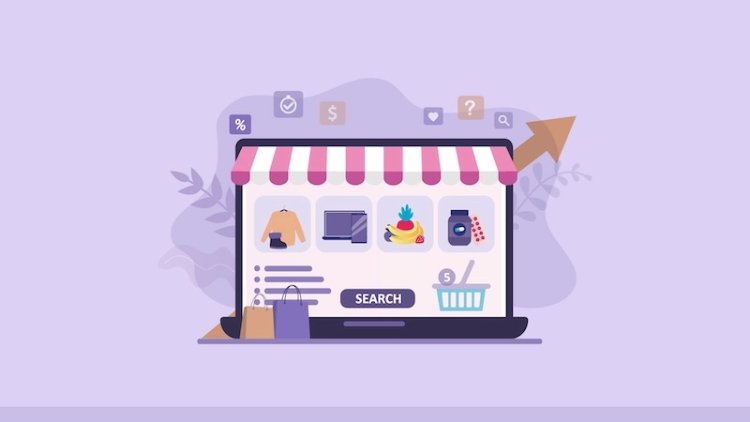Beyond Conventional Channels: The B2B SaaS Guide to Omnichannel Strategy
Adopting an omnichannel approach is no longer a choice but a necessity for B2B SaaS companies looking to thrive in the digital age.
Share this Post to earn Money ( Upto ₹100 per 1000 Views )

In today's rapidly evolving business landscape, B2B SaaS companies are facing intense competition. To stay ahead, businesses must adapt their strategies to meet the changing needs of their customers. One such strategy gaining prominence is omnichannel marketing. In this guide, we will explore what omnichannel customer experience entails, how to craft an effective B2B omnichannel strategy, and the key success factors for moving towards omnichannel sales.
What is an Omnichannel Customer Experience?
An omnichannel customer experience refers to a seamless and integrated approach to customer interactions across multiple channels. Unlike multichannel strategies that focus on individual channels, an omnichannel approach ensures consistency and continuity in customer experiences regardless of the channel used. This includes online platforms, mobile apps, social media, and offline interactions such as in-store visits or phone calls.
For B2B SaaS companies, providing an omnichannel experience means understanding the diverse touchpoints where customers engage with your brand. Whether it's through your website, email campaigns, live chat support, or industry events, every interaction should contribute to a unified and personalized customer journey.
Crafting an Effective B2B Omnichannel Strategy
To craft a successful B2B omnichannel strategy, businesses must focus on several key elements:
Customer-Centric Approach: Start by understanding your target audience's preferences, pain points, and journey stages. Tailor your omnichannel strategy to deliver relevant and valuable experiences at each touchpoint.
Data Integration: Utilize advanced data analytics and CRM systems to consolidate customer data from various channels. This integrated approach enables personalized communication and targeted marketing campaigns.
Cross-Channel Consistency: Maintain consistency in branding, messaging, and user experience across all channels. Ensure seamless transitions for customers switching between channels, avoiding disjointed experiences.
Technology Enablement: Leverage technology solutions such as marketing automation tools, AI-driven chatbots, and customer journey mapping software to streamline omnichannel operations and enhance customer engagement.
Continuous Optimization: Regularly monitor and analyze customer interactions, feedback, and performance metrics across channels. Use insights to refine your omnichannel strategy, optimize conversion rates, and drive customer loyalty.
5 Success Factors For Moving To Omnichannel Sales
Transitioning to omnichannel sales requires a strategic approach. Here are five success factors to consider:
1.Executive Buy-In: Obtain support from key stakeholders and leadership to prioritize omnichannel initiatives and allocate resources effectively.
2. Cross-Functional Collaboration: Foster collaboration between sales, marketing, customer service, and IT teams to align goals, processes, and technologies for seamless omnichannel execution.
3. Customer Journey Mapping: Develop comprehensive customer journey maps to identify touchpoints, pain points, and opportunities for delivering personalized experiences throughout the sales cycle.
4. Channel Integration: Integrate sales channels such as e-commerce platforms, partner portals, and direct sales channels to provide customers with diverse purchasing options and streamline order fulfillment.
5. Ongoing Training and Development: Invest in training programs and upskilling initiatives for sales teams to adapt to omnichannel selling practices, leverage new technologies, and deliver exceptional customer service.
By embracing an omnichannel strategy, B2B SaaS companies can enhance customer satisfaction, drive revenue growth, and establish a competitive edge in the market.
For expert guidance on implementing an omnichannel strategy tailored to your business needs, consider partnering with an omnichannel strategy consulting firm. These professionals can offer valuable insights, best practices, and customized solutions to optimize your omnichannel operations and drive business success.
In Conclusion,
Adopting an omnichannel approach is no longer a choice but a necessity for B2B SaaS companies looking to thrive in the digital age. By prioritizing customer experience, leveraging data-driven insights, and embracing innovative technologies, businesses can unlock new opportunities and achieve sustainable growth in today's dynamic marketplace.















